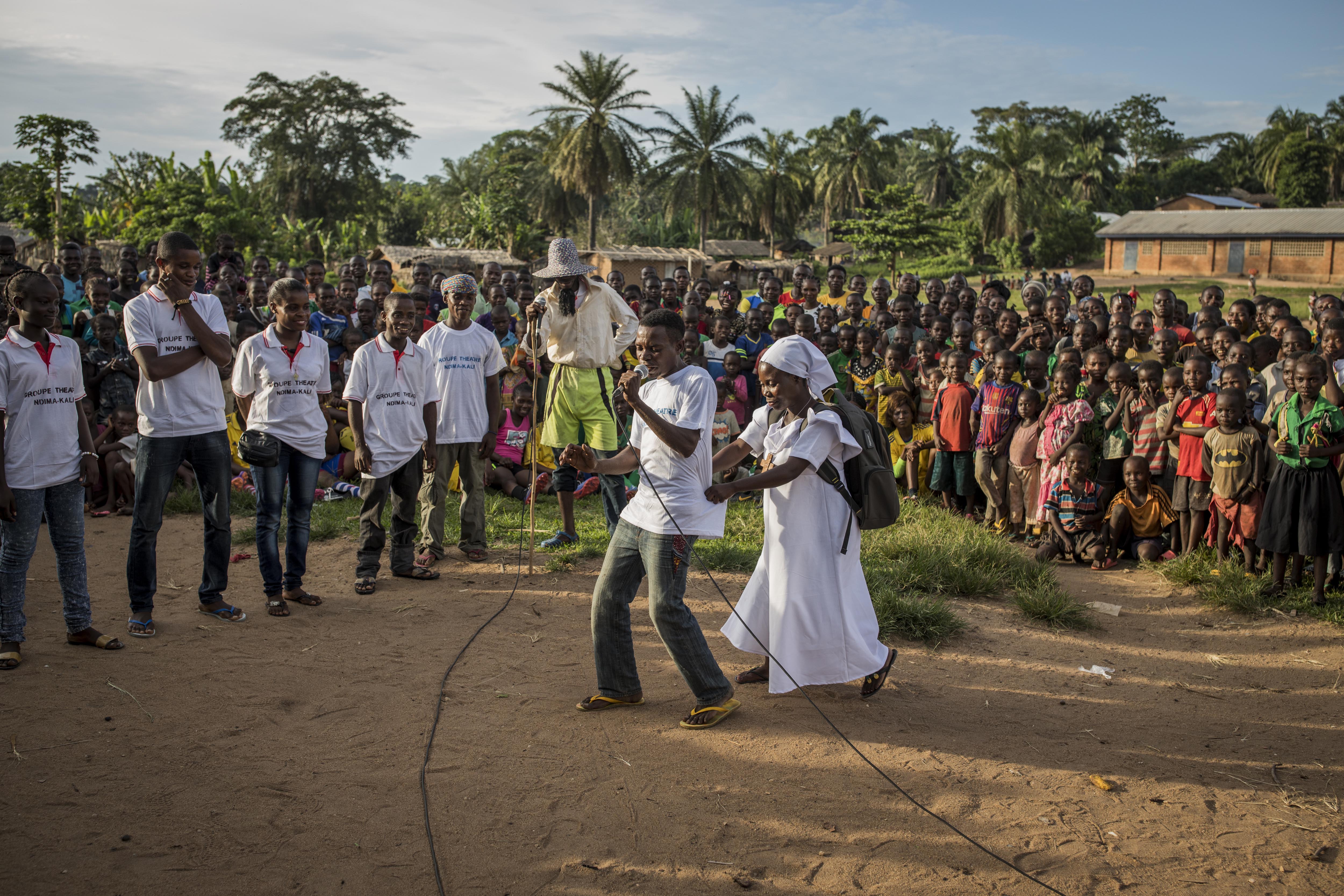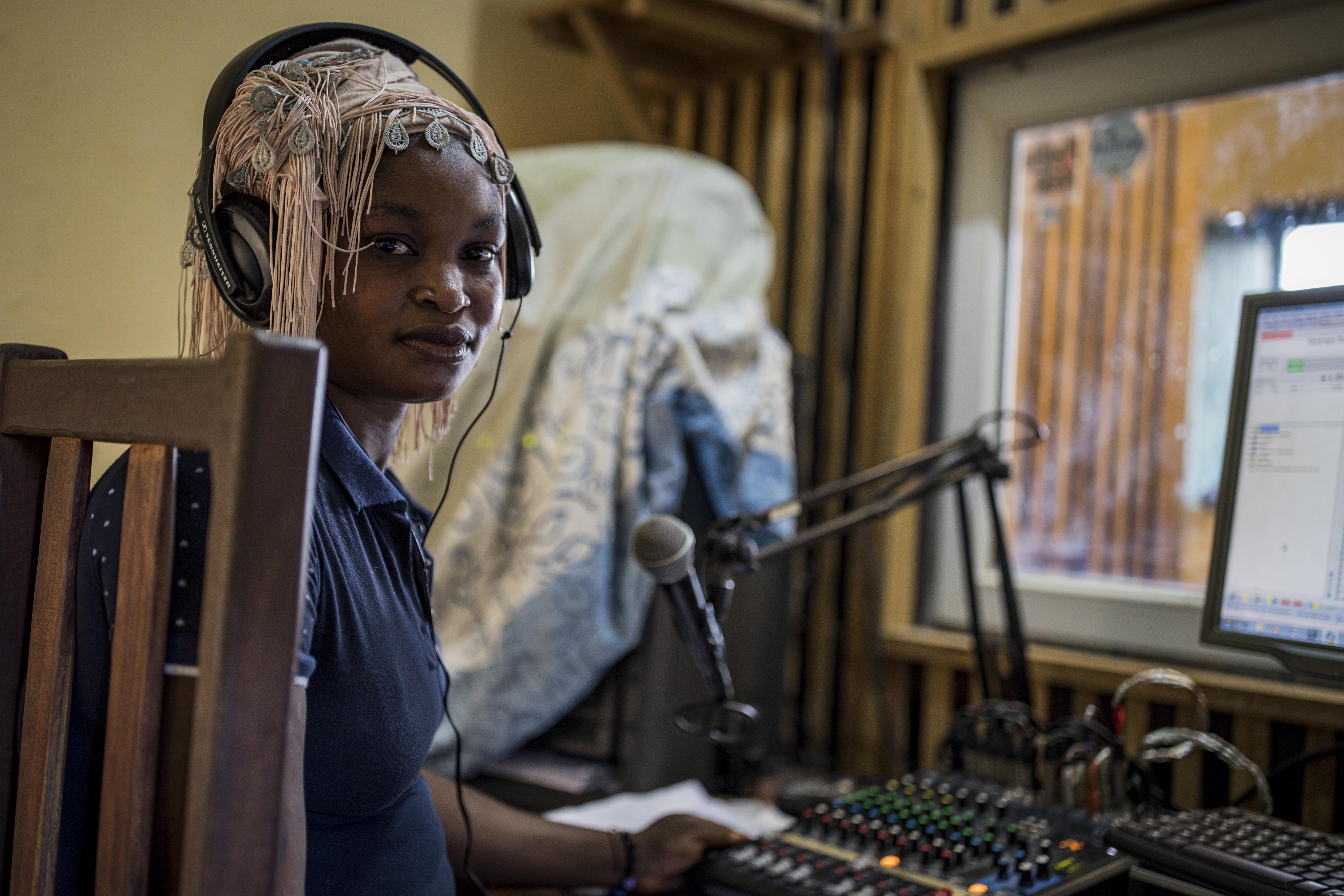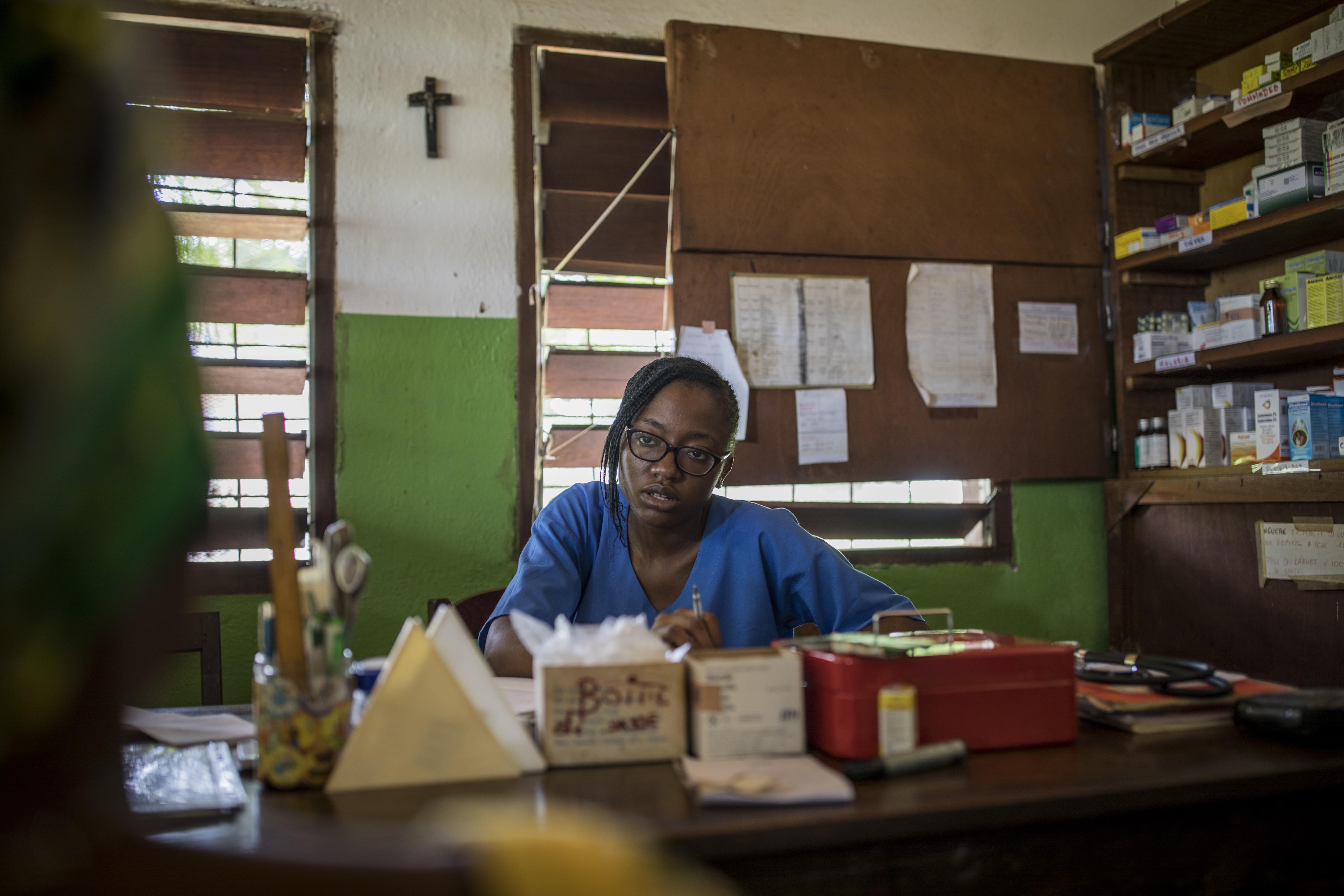



Sensitisation of the local and indigenous population is a key element in preventing major outbreaks of epidemics such as Ebola, anthrax or respiratory diseases. The direct and extended target group of the project includes staff of the primate habituation programme and their families, tourist guides, ecoguards, researchers, project staff, tourists and indirectly the local population.
Human Health Care - Conservation and ecotourism staff and their families receive an annual health check-up and vaccinations. In addition, access to health care for the general population was strengthened through cheaper or free health care in health stations and hospitals. A mobile unit was also set up to provide initial health care in remote locations.
Awareness raising - Radio programmes about zoonotic and infectious diseases have been designed to reach a broader audience. To target the indigenous population, an educational film was produced in local languages, and an indigenous youth organisation developed interactive theater plays to sensitize communities about infectious diseases and preventive measures.
Training - Health staff from 13 health stations in Dzanga-Sangha were trained through simulations to appropriately react in case of (epidemic) disease outbreaks.
- WWF has been active in Dzanga-Sangha for over 30 years
- Good and trustful relations with the local and national actors
- Holistic conservation approach that integrates sustainable development, cultural identity and ecological aspects.
- Social: Long-standing and participatory awareness-raising by local actors on hygiene measures and zoonotic disease transmission risks proved extremely helpful in the context of the Corona pandemic.
- Health: Employee health programmes should be directly supervised and coordinated by professional doctors in future projects.